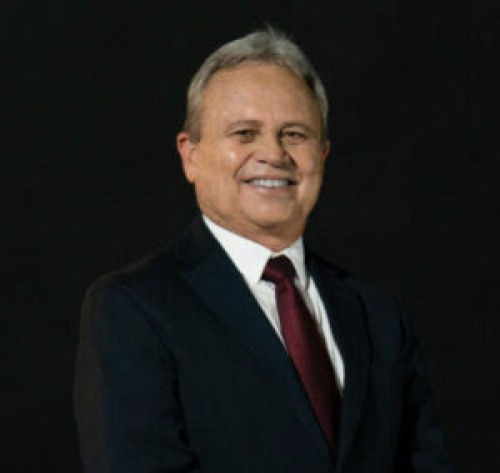PORT OF SPAIN, Trinidad – Finance Minister Colm Imbert has brushed aside any suggestion that the Trinidad and Tobago government would move to “float” the local currency, but announced a restructured foreign exchange (forex) window at the EximBank effective from the start of this month.
 Finance Minister Colm ImbertIn a message posted on X, formerly Twitter, Imbert said that he did not support the argument of a local newspaper that the government “float” the local currency, which is exchanged at TT$0.16 cents per US dollar as a solution to the demand for United States currency on the local market.
Finance Minister Colm ImbertIn a message posted on X, formerly Twitter, Imbert said that he did not support the argument of a local newspaper that the government “float” the local currency, which is exchanged at TT$0.16 cents per US dollar as a solution to the demand for United States currency on the local market.
“However, this helps no one except those hoarding US dollars to make a quick profit. It will not generate any extra US dollars for businesses and will just cause hardship and pain,” Imbert wrote.
Late Sunday, Imbert issued a statement in which he said the government would now be allocating US dollars to the EximBank for essential imports.
He said that the US$25 million per month is a five US dollar reduction from the COVID-19 list of imports.
“This is considered to be adequate at this time. It should also be noted that the forex window for export manufacturers is not being adjusted and will remain. The resumption of the forex window for essential imports, in its restructured format, is effective from November 1, 2024,” Imbert said.
Trinidad and Tobago has had a foreign exchange problem for years, and last week Imbert said that the public should not be held to “ransom” with a threat of increased prices for the restructuring and rationalization of a foreign exchange service that was introduced as a “temporary measure” during the COVID-19 emergency.
Imbert said it was well known that in 2020, as a result of the looming trade crisis brought on by the pandemic, the government took the decision to temporarily allow wholesale importers of essential goods access to EXIMBANK services.
He said that the entire initiative was again outlined in the 2025 national budget and that it was well known that the initiative was “always subject to periodic review”.
During his budget presentation last month, Imbert told legislators that In 2025, to further bolster the country’s reserves, “we plan to introduce legislation to encourage energy sector companies to remit all their taxes to the government in US dollars”.
He said even though all energy exports from Trinidad and Tobago were sold internationally for US dollars, he had done a detailed analysis and learnt that only 50 per cent of the money paid to Trinidad and Tobago was in the form of US dollars, with the other 50 per cent paid in local currency dollars.
“This is despite the fact that 100 per cent of the exports of oil, (natural) gas and petrochemicals are (paid) in US dollars, Imbert said, adding “so it is something we need to deal with.”
Last month, Imbert told a Trinidad and Tobago Manufacturers’ Association (TTMA) post-budget discussion that there was a shortage of foreign exchange and attributed the problem to increasing demand.
“There is an appetite to buy foreign goods, there is a demand for foreign exchange, and you have shortages,” he added.
In the statement on Sunday, Imbert said after careful consideration and a comprehensive review by the Ministry of Finance and the EximBank over the last month, Cabinet, at its regular weekly meeting on November 1, agreed to his recommendation that the forex window at the EximBank for essential imports, which was created by the Ministry of Finance in 2020 in response to an urgent and critical need during the COVID-19 pandemic, be resumed, in a restructured format
He said the base dataset used for the review was the final list of zero-rated items that came into effect on February 1st, 2016, by the Value Added Tax (VAT)Order 2016: items not manufactured in Trinidad and Tobago and items not specifically pandemic-related.
“Items outside these definitions should not be considered essential and should not qualify for preferential access to the Government’s foreign exchange through the EximBank.
“This special forex window at the EximBank has consumed US$30 million monthly over the last four years since its inception in 2020. It included forex for items such as cleaning supplies, bleach, sanitary equipment, protective gear, face masks, respirators, toothpaste, hand sanitisers, hand soap, tissue paper, hygiene products like deodorant, vaccines and over-the-counter drugs like cough syrup, as well as pharmaceuticals and essential foods.”
Imbert said it has been decided that the list of foods, pharmaceuticals, and essential hygiene products, such as sanitary napkins and pads, which qualified for this special forex window from 2020 to September 2024 will remain unchanged going forward.
He said however, it will be subject to periodic review to see whether items should be added or deleted, as necessary.
“For the avoidance of doubt, COVID-19 pandemic-related items such as hand soap, toothpaste, face masks, deodorant, respirators, and hand sanitisers are no longer considered to be “essential” imports.
“In this context, the role and impact of locally manufactured products, which substitute for imports, are being carefully examined. Greater access to forex for inputs for local consumption will be considered shortly. Further details of this aspect of forex distribution will be announced after consultation with stakeholders, ”Imbert added.


